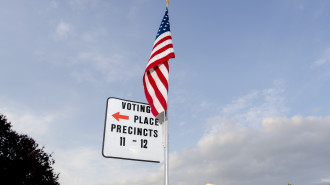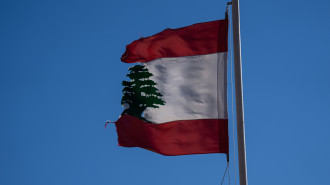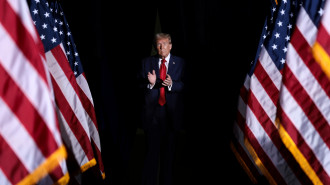Egypt's military gambit in Libya risks backfiring
Egyptian President Abdel Fattah al-Sisi called US President Donald Trump on the same day to discuss Libya's conflict, claiming that Cairo prefers non-intervention in the country.
"President El-Sisi confirmed Egypt's unwavering strategic position on Libya, which aimed at restoring stability in the country, preserving its national institutions, and preventing further deterioration in Libya's security situation via curbing illegal foreign interference in the Libyan issue," said a spokesperson for the Egyptian president.
Egypt readies for war
Egyptian troops are now organising themselves on the country's border, Al Masry Al Youm reported on Monday, suggesting that Cairo will back up its words over recent weeks with action.
Meanwhile, the UN on Monday warned of a "huge risk" of Libya sparking a greater regional war. Turkey continues supporting the internationally recognised Government of National Accord's (GNA) successful counter-offensive against renegade general Khalifa Haftar's so-called Libyan National Army (LNA), which launched an offensive to capture Tripoli in April 2019.
 |
Egypt's parliament has authorised the deployment of troops beyond its own borders |  |
Haftar has received backing from Egypt, the United Arab Emirates (UAE), Russia, France and Saudi Arabia – none of whom have renounced their support for the warlord.
Egypt's move had built up for weeks, as GNA forces edged closer towards the oil-rich city of Sirte and the Jufra air base, which serve as a key operations hub for Haftar's backers. In a televised speech on 20 June, Sisi hinted at sending troops to Libya to secure its western border.
Then on 16 July, Egypt warned it would intervene, citing security concerns. In a meeting in Cairo with tribal leaders operating alongside Haftar's so-called Libyan National Army, who invited Egypt to use military action, Sisi said "the red lines that we announced earlier... were basically a call for peace and to put an end to the conflict in Libya."
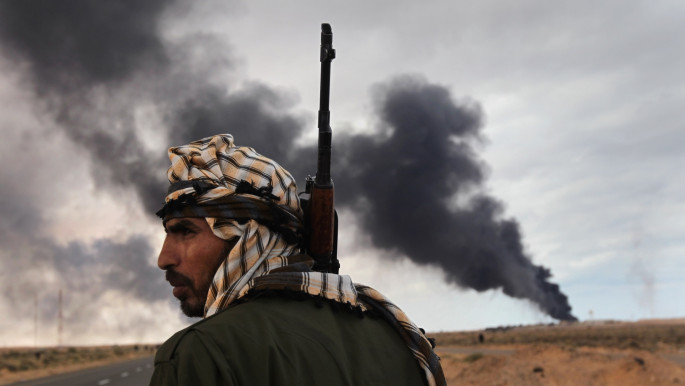 |
|
| Read more: Divided Europe: How the West lost influence in Libya's war |
"But we will not stand idle in the face of any moves that pose a direct threat to our national strategic security on our western borders, especially in light of the increasing military build-up operations in the vicinity of the city of Sirte. Egypt is able to change the military situation quickly and decisively if it wants," added Sisi.
However, when Sisi called Sirte a 'red-line,' observers slammed it as hypocritical, and a further breach of Libya's sovereignty should Cairo proceed, given the city is over 1,000km from Egypt's borders.
Many Egyptians meanwhile expressed their opposition towards the intervention, with the Arabic hashtag for "I did not delegate" spreading across Twitter following Sisi's decision.
Egypt has played an important role in empowering Haftar's forces, seeing his authoritarian military rule as a means of containing perceived security threats on its western border, and has backed his offensive on Tripoli. Along with Saudi Arabia, Cairo also lobbied Trump to support Haftar in April 2019.
Risks of greater conflict
Egypt's concerns, however, transcend Sirte's developments and whoever controls Libya's resources. Should Sirte fall to the GNA, the conflict may drift closer to its western border and create what it perceives as security threats within Egypt.
Meanwhile, two Egyptian officials suggested to Madr Masr that Egypt would only push forward with the military move should Sirte and Jufra fall. While Cairo presents this as a security move, its rivals have reacted harshly, with Libya's Foreign Minister Fathi Bashagha interpreting Cairo's deployment as a declaration of war.
 |
Egypt has played an important role in empowering Haftar's forces, seeing his authoritarian military rule as a means of containing security threats on its western border |  |
"Egyptian parliament approval of troops deployment outside its western borders is a declaration of war on Libya and violates Arab League and UN charters," Bashagha said on 21 July in a tweet which he later removed. "Foreign forces on Libyan grounds are enemy. WE WILL NOT HESITATE defending our nation's sovereignty, security and freedom."
Meanwhile, Turkish President Recep Tayyip Erdogan denounced Egypt's actions as "illegal" and "piratical." Turkey has said it will only accept a ceasefire should Haftar withdraw. However, given Haftar's foreign backers have not entirely ceased their support for him, he will not step down so easily.
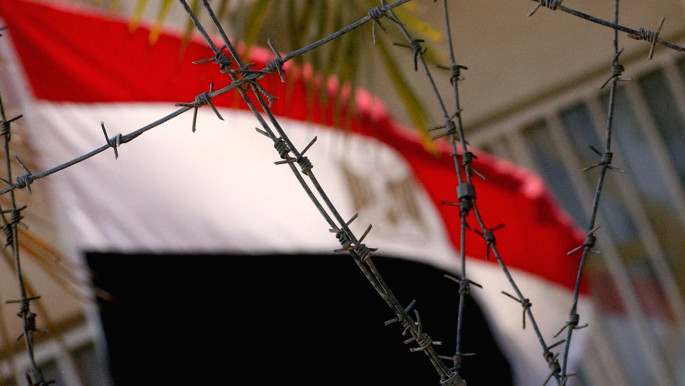 |
|
| Read more: Egypt's relentless war on journalism persists amid pandemic |
With a successful use of militias, proxies and drones, Turkey has enabled the GNA to push back Haftar, despite his tremendous international backing. The threat of Egypt's intervention would not deter it.
For Egypt's critics, its declarations of war are mere posturing to distract Egypt's population from its failures to deter Ethiopia over the river Nile water dispute and its mishandling of the coronavirus pandemic.
While directing attention towards Libya's war certainly serves these purposes, Egypt would prefer to avoid a direct confrontation with Turkey.
Egypt's military shortcomings
Despite Cairo's own rhetoric that Egypt has the most powerful Arab army, its military is rusty and has struggled in various operations, such as its campaign to defeat militants in the Sinai Peninsula.
 |
Turkey has enabled the GNA to push back Haftar, despite his tremendous international backing. The threat of Egypt's intervention would not deter it |  |
As Egyptian Defence Review wrote, Egypt will use "serious conventional formations, which include armored brigades, tactical fighter wings, and navy warships."
But Egypt faces other obstacles, such as the need for long supply lines. "This situation will only allow for short offensives, but if supplies are exhausted, then Egypt's ground forces may run the risk of significant loss in momentum should opposing forces not quickly capitulate in the face of conventional armored forces," the report added.
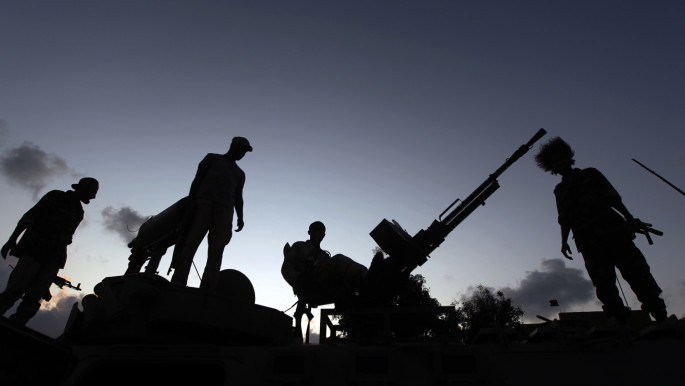 |
|
| Read more: After Haftar: What's next in Libya's conflict? |
Cairo would therefore require external support. France and the UAE have largely cooperated on Libya, and this has increased as Turkey's presence has grown stronger. They have both backed Egypt's so-called 'peace initiative' on 6 June, largely aimed at encouraging GNA de-escalation.
Both also defend Egypt's 'right' to militarily defend its security. Using Egypt as a 'buffer' enables both Paris and Abu Dhabi to counteract Turkey's growing influence in the country, having expended fruitlessly on supporting Haftar.
Given Egypt's limited capabilities to engage in direct warfare, it would ultimately need logistical cooperation with other actors, namely Russia and the UAE. However, while the UAE would be willing to help counter Ankara, Russia is more willing to engage with Turkey. This would likely cancel Cairo's objectives of pushing Ankara back in the long-term.
The human cost would meanwhile be painful for Sirte, which has endured endless conflict since the 2011 revolution against Muammar Gaddafi. A report by International Crisis Group (ICG) said "the repercussions of a resumption of hostilities for the local civilian population would be catastrophic."
"Egypt's rumoured plan to transfer weapons to eastern Libyan tribal groups risks unleashing even more local violence and retaliatory measures against civilians," it added.
Unless there are serious initiatives to encourage de-escalation from external actors, a new intervention would create a vicious cycle of violence.
Jonathan Fenton-Harvey is a journalist and researcher who focuses on conflict, geopolitics and humanitarian issues in the Middle East and North Africa
Follow him on Twitter: @jfentonharvey

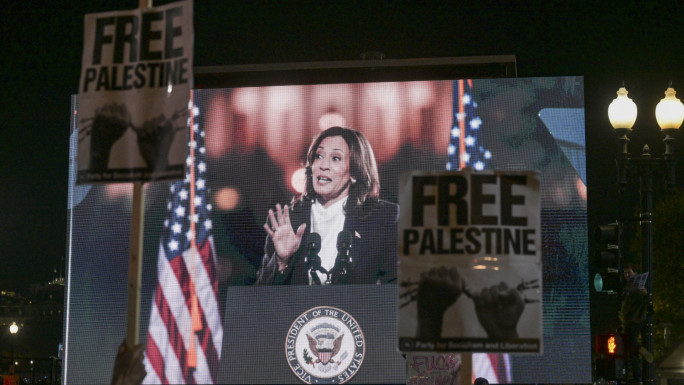

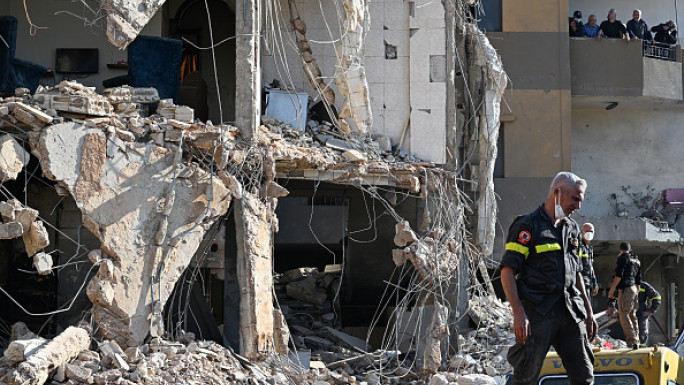
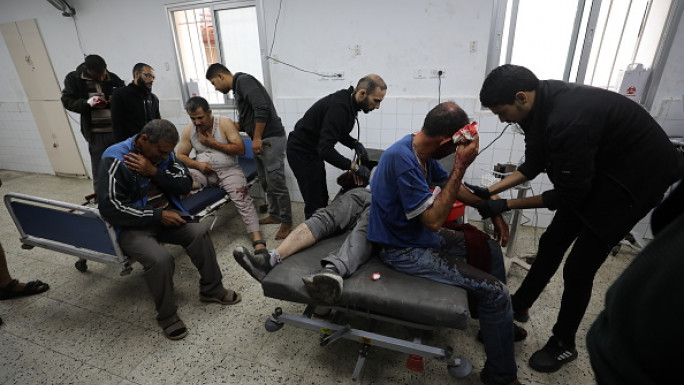
 Follow the Middle East's top stories in English at The New Arab on Google News
Follow the Middle East's top stories in English at The New Arab on Google News
